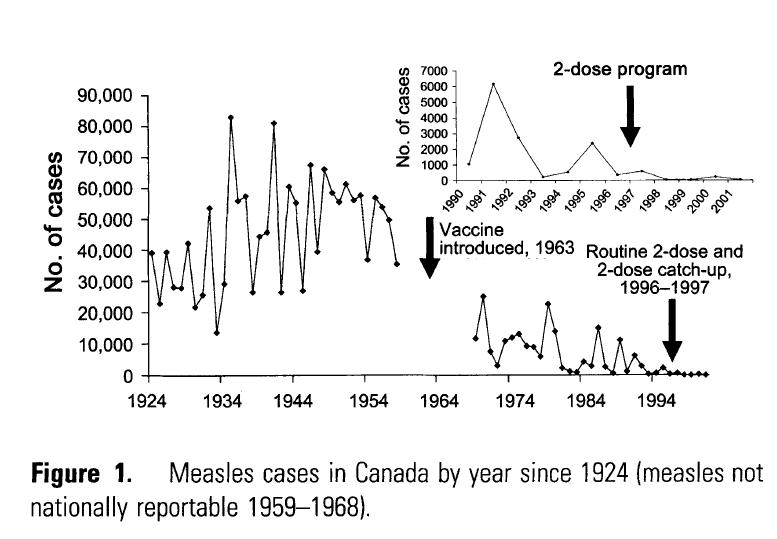Magical Realist
Valued Senior Member
You have "provided the evidence" much the same as you did for those made up statistics, hm? Like:
Also, where is your supporting evidence for:
These are just a small sampling of your unsubstantiated claims...
They were never unsubstantiated. I had already posted this whole article in the thread. Here's the final lines of it.
"But I digress, let’s compare measles death rates in 1963 to other death rates in 1963.
In 1963, there were about 450 deaths from measles. Meanwhile, about 12,000 people died from stomach ulcers and the likes. Just over 43,000 people died from car accidents in 1963. Over 700,000 people died from heart disease.
In 1963, you were more likely to be one of the 9200 people murdered that year than to die of measles. If you were born in 1963, you were more likely to die from a congenital disease than from measles. In 1963, it was about 46 times more likely for a child to die from a congenital malformation than for someone to die from the measles."
Frankly, in 1963, you were about 46 times more likely to kill yourself than you were to die from measles."====http://vaxtruth.org/2012/01/measles-perspective/
I also quoted a source showing the chances of dying from measles is closer to 1 in 10,000 now. You can go find that. I'm not going to repeat my whole thread here for you.
Interesting how your guilty conscience works... I was merely providing an example; you are the one who took it to apply to yourself *shrug*
You're the one making the insult. Do you really think that helps your case? It doesn't. It is immature and obnoxious and trollish. Take responsibility for your own words.

